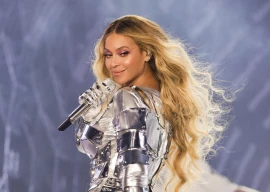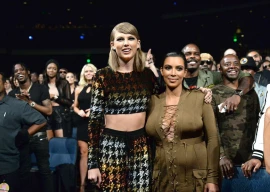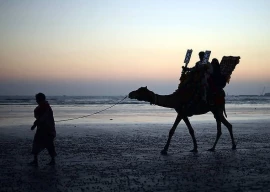
Featuring the inimitable Malaika Arora Khan, the song went on to become a chart topper in India and the film broke box office records, including that held by Aamir Khan’s 3 Idiots.
But while Dabangg made millions at the box office - fuelled by the popularity of the song - it also came in for its share of controversy. The producers of Dabangg were served a legal notice by the makers of Zandu Balm (a product mentioned in the song) and “Munni Badnaam” itself has been reportedly plagiarised. The song is said to be inspired by “Launda Badnaam Hua Naseeban Tere Liye” from the album Balma Bada Bavaali (1998) which in turn was lifted from a Pakistani song “Larka Badnam Hua” from the film Mr Charlie (1992) starring comedian Umer Sharif.
The alleged plagiarism hasn’t deterred anyone from capitalising on the song to attract viewers.
People who tuned into the radio during the holiday may have heard the Eid-themed jingle, “Bakra qurbaan kia, darling tere liye”.
Umer Sharif, who is known for his rib-tickling stage performances, returned to the stage this Eid after several years with a play titled Munni Badnam Hui, which was staged at Karachi’s Arts Council theatre.
Sharif played a character called Munni in the play and had the audience in fits with his funny lines and comic situations. The storyline of the play revolved around a household with Munni as the focus of attention in her locality.
The song has also been spoofed on a political satire show.
Bushra Ansari’s play Doli Ki Aayegi Baraat was staged on Geo TV this Eid. The play revolved around two families, one living in Karachi and the other in Faisalabad, whose children wanted to marry each other. The finale of the play was a dholki sequence where both the families danced their hearts out to “Munni Badnaam”.
WITH ADDITIONAL INFORMATION BY THE NEWS DESK
Published in The Express Tribune, November 22nd, 2010.
































COMMENTS (5)
Comments are moderated and generally will be posted if they are on-topic and not abusive.
For more information, please see our Comments FAQ